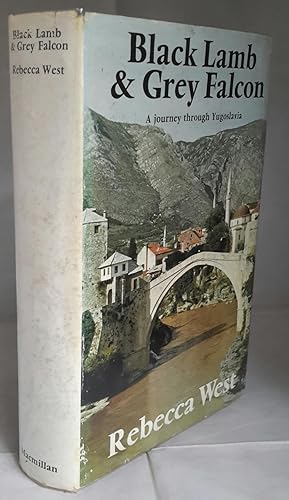
At a historic Turkish house, West is skeptical about the aging owner’s account of its importance. At Trebinje, they visit a market where all the traders are Muslim Slavs. West is appalled by the legacy of Turkish rule in the province. Next, the couple travels to the first Slav region on their tour: Herzegovina. Nevertheless, West admires the Dalmatians for resisting the onslaught of Turkish invaders in the Middle Ages. The couple proceeds through Trogir, KorÄula, and Dubrovnik, which West finds disagreeable. This leads to a discussion of the Roman Emperor Diocletian. She judges the island of Rab one of the world’s most beautiful places and enthuses about the Roman architecture of Split. From Zagreb, West and Henry take a train to Dalmatia. She reports on Valetta’s political fight against Croatia’s undemocratic regime. West identifies lingering wounds of that oppression in the contemporary Croatian psyche.

Meanwhile, West narrates Croatia’s troubled history, focusing on its long oppression by the Austro-Hungarian Empire. The three men bicker constantly as they show West and Henry around the city and the outlying village of Shestine, ending up in Zagreb’s cathedral. In Zagreb, the couple meets up with three local friends: Constantine, a poet and a Serb, and two Croats, the mathematician Valetta and a journalist, Marko. West and Henry later discover that the Germans themselves only have second-class tickets. Discovering that another passenger has a second-class ticket, the Germans force him to leave the first-class carriage. On the train from Austria to Zagreb, Croatia, West and her husband, Henry, encounter some “disagreeable” Germans. It occurred to her then that World War I had begun in the Balkans, and that her ignorance of the region, therefore, might prove to be ignorance of her own destiny.

She remembers learning in 1934 that King Alexander of Yugoslavia had been assassinated and realizing that she knew nothing about the region.

In the prologue, West explains her interest in Yugoslavia while setting out one of its central themes: the interconnectedness of lives and events, and of place and history.

It is widely regarded as one of the most important pieces of travel writing in the English language. Over more than a thousand pages, West recounts six weeks spent in the former Yugoslavia in 1937, interweaving her travel narrative with a thorough history and ethnography of the region, in an attempt to “show the past side by side with the present it created.” Published shortly after the Nazi invasion of Yugoslavia, Black Lamb and Grey Falcon is a portrait of European civilization on the brink of war. Black Lamb and Grey Falcon: A Journey Through Yugoslavia is a 1941 travel memoir by British author Rebecca West.


 0 kommentar(er)
0 kommentar(er)
